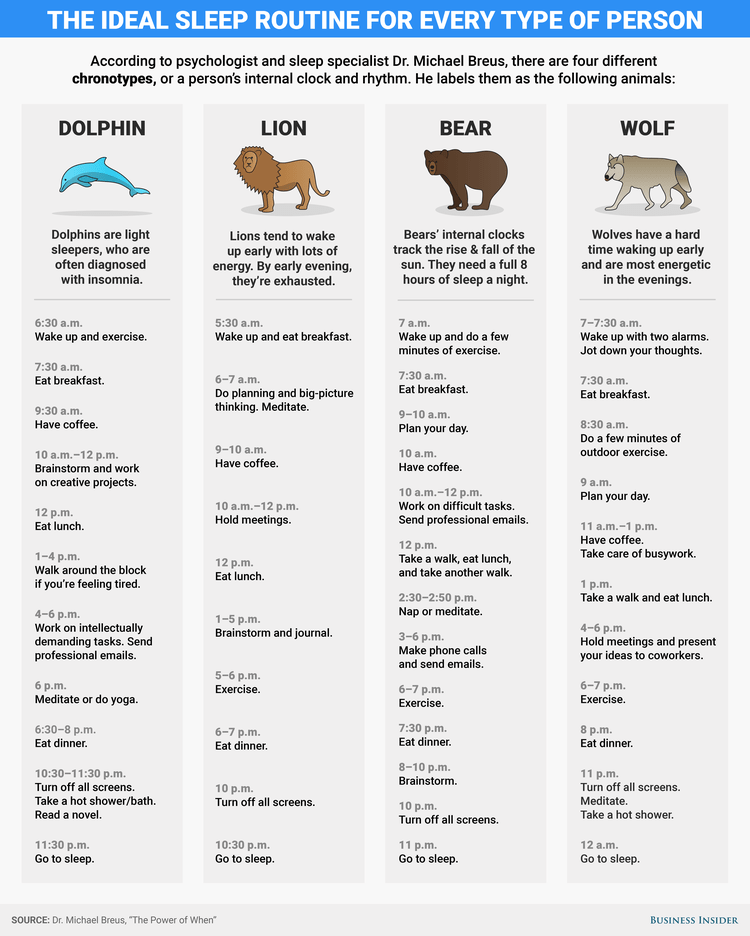Are you an early bird or a night owl? Your chronotype will help you better understand why some situations work either for or against you.
Actually, a person’s chronotype is not limited to what time you wake up and what time you go to bed; it’s about your overall timeline. It includes all your primal needs, such as eating, performing tasks, resting, etc.
“Chronotypes have a genetic basis and are linked specifically to your PER3 gene. Your chronotype is tied to your circadian rhythms and your internal body clock.”
Don’t do mornings?
If you ever feel like mornings are your worst enemy or the thought of heading to the gym in the afternoon makes you tired just thinking of it – finding your chronotype could easily help you plan your day (and night) better.
There are four main types:
- Bears – More or less half of the population falls under the Bear category. Sleep and wake according to the sun. Very little trouble falling asleep and waking up. Most productive mid-morning and dips mid-afternoon.
- Wolves, a.k.a night owls. Roughly around 15-20% of the population.
The wolf wakes up late and goes to sleep later than most people—their energy peaks around mid-day and late at night. - Lion, a.k.a early birds. They wake up early and get sh*t done before noon, then naturally fall asleep as soon as the clock hits 9 pm. Just like wolves, they make up around 15-20% of the population.
- Dolphin. Light, restless sleep. Most productive around mid-morning and early afternoon. Only 10% fall under this category.
Most people don’t think about their chronotype since our daily routines may naturally work around our type – a Lion would not apply for a nightshift position, and a Wolf would not agree to open a 5 am bakery. But sometimes we go against our type and fight our instincts, instead of understanding our true nature. For example, a bear would probably benefit from a 10 min afternoon power nap or meditation in a quiet space, rather than going for the regular coffee refill. A Lion may want to stay away from forcing themselves to stay awake just because the rest of the family is still up watching Netflix. It’s simply better to follow your internal clock.
Are night owls lazy?
Unfortunately, society is tailored for early birds rather than night owls. Morning people are considered ambitious (hello Zoom meeting at 8 am) compared to lazy people staying up at night and sleeping all day. However, this has nothing to do with ambition; it’s all down to our chronotype – it even determines our body temperature, serum cortisol levels, and blood pressure.
Our type may shift during our lifetime; teens need more sleep than an older person, and that’s why some people are suggesting a later start for school. Not because they are lazy, but because their body clock is set differently during those years, and later start times may positively affect their mental and physical health.
None of the types are better or worse than the other – simply different!
If you didn’t do well during your last game, or the training session always feels tough at a particular time of the day – take a look at your sleep and wake pattern. While we can’t always control our days, we can try our best to look at the things we can change.















